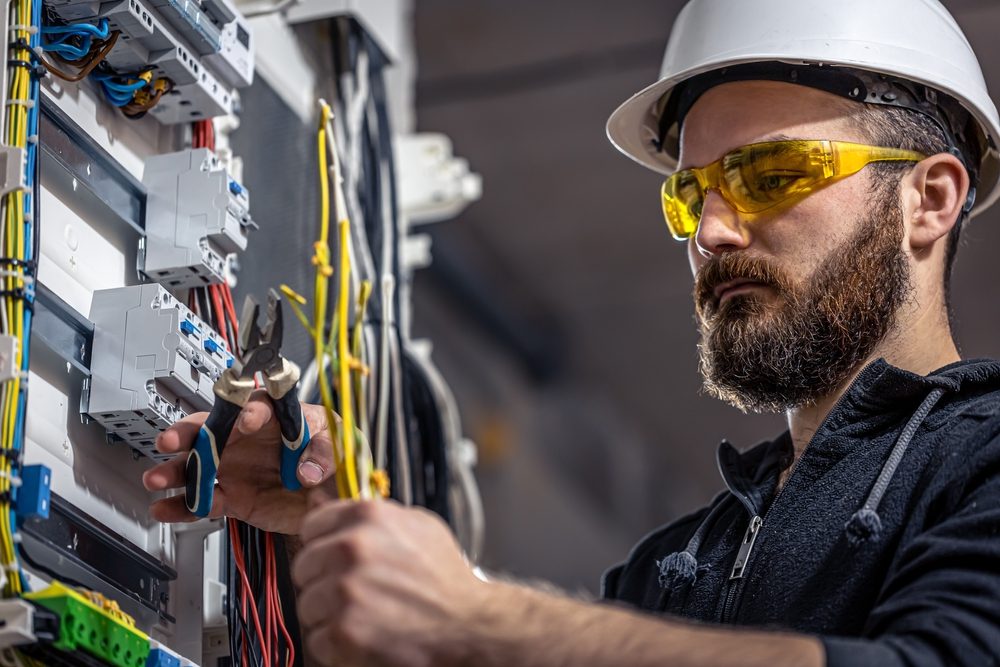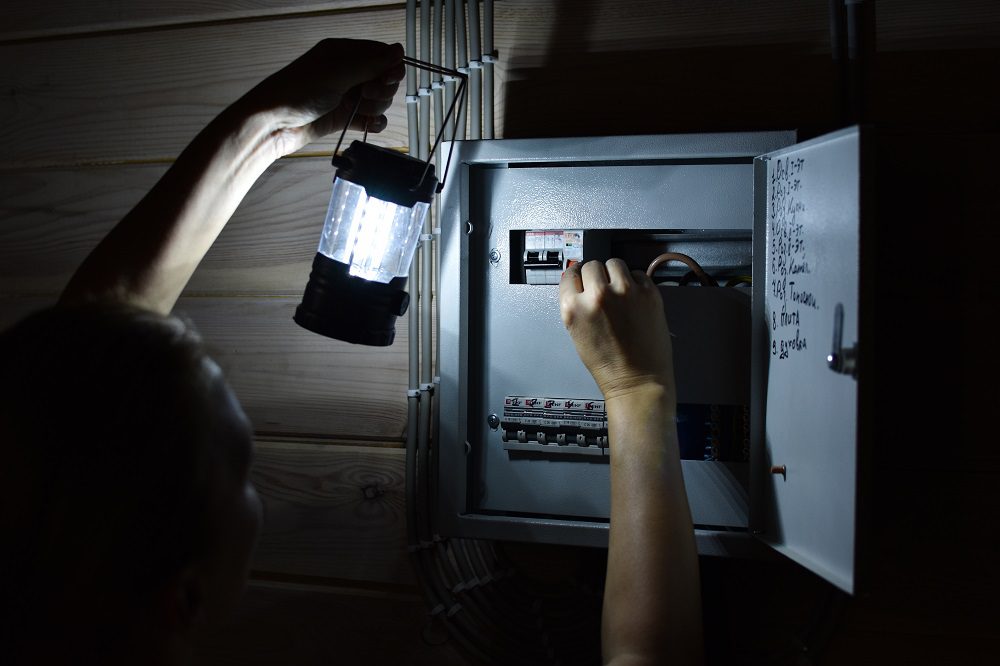Charlotte homes face wiring strain that many owners do not see until a breaker trips during dinner or a GFCI refuses to reset in the bathroom. Growth across South End, Ballantyne, University City, and Steele Creek has pushed older housing stock to handle heavier loads: EV chargers, dual-zone HVAC, tankless water heaters, and home offices full of electronics. The result is clear in service calls across Mecklenburg County. Panels run hot. Outlets discolor. AFCI breakers trip under mixed lighting loads. These are not random quirks; they are signs the system needs attention.

Ewing Electric Co. installs and upgrades electrical wiring in Charlotte, NC homes every week. The team works in bungalows in Dilworth, 90s builds in Highland Creek, and new additions in Plaza Midwood. The patterns repeat, and the fixes are straightforward when handled by a licensed electrician who knows local code, supply chain realities, and Duke Energy requirements.
Why Charlotte homes outgrow their wiring
Many Charlotte homes were wired for a very different lifestyle. A 1960s ranch in Madison Park likely has a 100-amp panel, limited grounding, and no arc-fault protection. That setup handled a television, a few lamps, and a single oven. Today, that same home might run a 40-amp EV charger, a heat pump, a microwave, induction cooktop, and a workshop in the garage. Even 200-amp panels can reach their limits once outdoor kitchens, hot tubs, and home offices enter the picture.
Heat and humidity also wear connections faster. Summer moisture creeps into exterior boxes in Elizabeth and Myers Park, corroding terminations and making already stressed connections run hotter. A small amount of corrosion adds resistance and voltage drop, which leads to nuisance trips and shorter device life.
Hidden risks that show up in daily use
Most hazards hide in plain sight. Homeowners describe “quirky” behavior that, to an electrician, sounds like clear risk. Lights dim when the heat pump starts. Breakers trip when a hair dryer runs with a space heater. A receptacle faceplate feels warm. LED lights flicker on one circuit while the rest of the house is fine. These are early warnings.
A few common culprits turn up often in Charlotte:
- Aging aluminum branch circuits from the late 60s and early 70s. Aluminum expands and contracts more than copper, which loosens terminations over time. Correct repairs require COPALUM or AlumiConn-rated connectors, not a dab of paste and a twist. Shared neutrals on multi-wire branch circuits. Older work used them, but modern code expects handle-tied breakers or two-pole breakers to trip together. Without that, a neutral can overload and overheat in the wall. Outdated panels. Certain legacy panels, like many Federal Pacific and Zinsco brands, have documented failure issues. Breakers fail to trip under fault. Replacement is more than an upgrade; it is a safety correction. GFCI and AFCI coverage gaps. Kitchens, bathrooms, laundry rooms, exterior outlets, and many living spaces now need GFCI or AFCI protection. Older homes often have neither, or they mix incompatible devices that cause nuisance trips.
How Charlotte’s growth shapes wiring needs
The city adds EVs, accessory dwelling units, and backyard offices every year. SouthPark remodels often include 240-volt cooking rewiring Charlotte NC and stacked laundry. NoDa studios convert detached garages into short-term rentals. These changes demand dedicated circuits and sometimes a service upgrade from 100 to 200 amps or higher. Duke Energy meter bases, clearances, and grounding electrode systems must meet current code during a service change. An electrician who deals with Charlotte inspections weekly can move the project from quote to green sticker without delays.
Neighborhood specifics matter. Condos in Uptown often require coordination with building management and load studies for shared risers. Historic homes in Wilmore need careful fishing of new NM-B or MC cable without opening plaster. Lake Wylie and Mountain Island Lake properties see long feeder runs to docks or workshops where voltage drop needs calculation, not guesswork.
Practical signs your home needs a wiring upgrade
A single symptom can come from many causes, but clusters tell the story. If any two or more of these show up, it is time for an assessment:
- Frequent breaker trips under normal use, especially on kitchen or HVAC circuits. Warm or buzzing outlets or switches, or a panel that smells like hot plastic. Two-prong receptacles, extension cords used as permanent wiring, or visible cloth-sheathed cable. Flicker or dimming when large appliances start, noticeable in multiple rooms. Lack of GFCI/AFCI protection in areas now required by code, or EV charging from a standard receptacle instead of a proper 240-volt circuit.
What a proper wiring assessment looks like
A good assessment is systematic. The electrician pulls panel covers, checks breaker torque, looks for double-lugged neutrals, and scans with an infrared camera for hot spots. Branch circuits get tested for voltage drop under load. Receptacles are checked for correct polarity, ground presence, and GFCI function. If aluminum wiring is suspected, devices are pulled to confirm conductor type and terminations. The service mast, meter base, grounding electrodes, and bonding are inspected. Clear photos and plain language notes help homeowners understand options.
In many Charlotte homes, the fix starts with the panel. Replacing a recalled panel and reorganizing circuits removes a weak link. Adding space for dedicated appliance circuits reduces nuisance trips. From there, targeted rewiring solves the most stressed runs: kitchen small-appliance circuits, laundry, bathroom GFCIs, and HVAC disconnects. Bedrooms and living areas benefit from AFCI protection to reduce arc faults from damaged cords or nails through cables.
Smart fixes that match Charlotte living
Homeowners ask for solutions that work now and set them up for the next stage. The following upgrades pay off in safety and convenience:

- Panel replacement with room to grow. A 200-amp, 40-space panel in a ranch gives space for EV, hot tub, and workshop circuits. In larger homes, a 225-amp or a subpanel in the garage keeps runs short and neat. Dedicated EV charging circuits. A 50-amp circuit for Level 2 charging protects both the car and the home wiring. Ewing Electric Co. installs chargers that meet manufacturer specs and city permitting. GFCI/AFCI coverage that aligns with current code. Combination AFCI breakers or outlet-based solutions reduce arc and ground-fault hazards. The right choice depends on the age of wiring and the type of loads on each circuit. Kitchen and laundry rewiring. Two or more 20-amp small-appliance circuits, a dedicated microwave circuit, and proper laundry circuits stop the weekend breaker shuffle. Surge protection at the service. Whole-home surge devices protect HVAC boards, refrigerators, and sensitive electronics from storms and utility switching. Given Charlotte’s summer lightning, this device saves money over time.
Cost ranges Charlotte owners actually see
Costs vary with access, finishes, and panel location, but local averages help with planning. Panel replacements typically land in the $2,200 to $4,500 range depending on amperage, brand, grounding corrections, and required AFCI breakers. A full service upgrade that includes meter base, mast, and coordination with Duke Energy often ranges from $3,800 to $7,500. Dedicated EV circuits commonly fall between $650 and $1,600 based on distance and wall type. Targeted kitchen rewiring during a remodel might add $1,500 to $3,500 to the electrical scope. A whole-home rewire spreads wider, from $12,000 to $30,000+, driven by size, plaster vs. drywall, and attic or crawl access. Ewing Electric Co. provides firm quotes after inspection, not guesses over the phone.
Timelines and permits in Mecklenburg County
Most panel replacements take a day on site, with same-day power restoration once the inspector signs off. Service upgrades can take two to three weeks from approval to completion due to utility scheduling. Rewires inside finished spaces can run three to ten days, staged to keep parts of the home powered each night. All work is permitted and inspected by the City of Charlotte or Mecklenburg County. That step protects resale and insurance standing and keeps projects aligned with current NEC cycles adopted locally.

Quality details that prevent callbacks
Small choices affect long-term performance. Copper pigtails with listed aluminum-to-copper connectors solve aluminum branch circuits correctly. AFCI breakers from the same manufacturer as the panel reduce nuisance trips. Deep boxes in kitchen backsplashes keep device heat down. Stainless or in-use covers on exterior outlets handle humidity and pressure washing better than plastic. Arc-rated staples and proper cable support prevent damage in attic runs. An electrician who works Charlotte homes every day knows where shortcuts show up and avoids them.
Why a local electrician makes a difference
Local context matters in electrical wiring Charlotte NC. Soil conditions affect grounding resistance. Older neighborhoods hide splice boxes in attics that newer techs might miss. Duke Energy service heights and setbacks are enforced closely. Inspectors in different zones may flag different details. A local team that runs these routes daily moves jobs through permitting and inspection faster and brings the right fittings the first time.
A quick homeowner checklist before calling
- Gather a short list of symptoms with times and appliances involved. Take clear photos of the panel with the door open and closed. Note recent changes: new HVAC, EV, hot tub, or kitchen gear. Check for hot or discolored outlets and any buzzing sounds. Confirm the address and access details for parking and panel location.
Ready for a safer, stronger electrical system?
Whether it is a 1950s ranch in Sherwood Forest with aluminum branch circuits or a newer home in Berewick that needs an EV circuit and panel expansion, Ewing Electric Co. makes upgrades clean, code-compliant, and future-ready. The team handles assessment, permits, inspection, and coordination with Duke Energy. Schedule a visit, and the electrician will map the current load, show weak points, and give clear options with transparent pricing. Charlotte homes have changed. The wiring should keep up.
Ewing Electric Co provides dependable residential and commercial electrical services in Charlotte, NC. Family-owned for over 35 years, we handle electrical panel upgrades, EV charger installation, generator installation, whole-home rewiring, and 24/7 emergency repairs. Our licensed electricians deliver code-compliant, energy-efficient solutions with honest pricing and careful workmanship. From quick home fixes to full commercial installations, we’re known for reliable service done right the first time. Proudly serving Charlotte, Matthews, Mint Hill, and nearby communities.
Ewing Electric Co
7316 Wallace Rd STE D
Charlotte,
NC
28212,
USA
Phone: (704) 804-3320
Website: https://ewingelectricco.com/ | Electric Company in Charlotte
Social: Facebook | Instagram | Twitter | LinkedIn | Yelp | Angi | BBB
Map: View on Google Maps